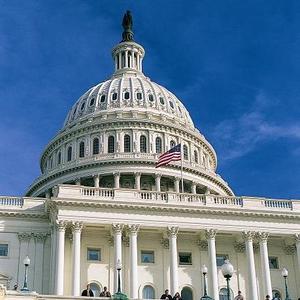Task forces to find long-term solutions to temporary tax policy

May 16, 2019
BY The Office of Sen. Chuck Grassley
U.S. Senate Finance Committee Chairman Chuck Grassley of Iowa and Ranking Member Ron Wyden of Oregon announced May 16 the formation of several bipartisan task forces to examine temporary tax provisions that expired, or will expire, between Dec. 31, 2017, and Dec. 31, 2019—a total of 42 provisions.
The task forces will be charged with examining tax policies within the following issue areas: workforce and community development, health, energy, business cost recovery, and a combined group consisting of individual, excise and other temporary policies. They will be tasked with finding possible solutions that would provide long-term certainty in these areas. A separate task force will examine whether there is a core package of tax relief provisions that should be available when natural disasters strike.
“It’s past time for Congress to end its bad habit of waiting until the last minute to extend temporary tax policy,” Grassley said. “This type of tax policy is meant to encourage long-term growth and investment. By definition, that must be done deliberately and ahead of time to be successful. I encourage stakeholders to view this as an opportunity to come to the table and work with us to find long-term solutions. The alternative is continued uncertainty or an even worse outcome. I also hope my colleagues in the House of Representatives will take note that the Senate is willing to work on long-term solutions to temporary tax policy and immediately send us a bill that addresses the provisions that expired for 2018 so we can deal with the unfairness Congress has caused for so many individuals and industries.”
Wyden said, “Extending tax incentives for a year or two at a time is no way to craft public policy. The finance committee’s task forces are working to develop permanent solutions to these vexing tax issues.”
Advertisement
Advertisement
In February, Grassley and Wyden introduced bipartisan legislation to restore the tax provisions that expired at the end of 2017 and 2018 through the balance of this year and provide disaster tax relief benefits to individuals and businesses affected by major disasters occurring in 2018. The House of Representatives is required under the Constitution to initiate all tax legislation.
The energy task force members include Sens. John Thune, Debbie Stabenow, Pat Roberts, Thomas Carpenter, John Cornyn, Sheldon Whitehouse, Bill Cassidy and Maggie Hassan. The email contact for the energy task force is Energy_Taskforce@finance.senate.gov. Grassley and Wyden are ex officio members of every task force. Further information about the temporary tax policies that the task forces will examine can be found here.
Advertisement
Advertisement
Related Stories
While final IRS guidance is still pending, the foundation of the 45Z program is well defined. Clean fuel producers should no longer be waiting; they can now move forward with critical planning and preparation, according to EcoEngineers.
The IRS on July 21 published a notice announcing the 2025 calendar-year inflation adjustment factor for the Section 45Z clen fuel production credit. The resulting adjustment boosts maximum the value of the credit by approximately 6%.
The U.S. Senate on July 23 voted 48 to 47 to confirm the appointment of Aaron Szabo to serve as assistant administrator of the U.S. EPA’s Office of Air and Radiation. Biofuel groups are congratulating him on his appointment.
U.S. Secretary of Agriculture Brooke L. Rollins today announced the reorganization of the USDA, refocusing its core operations to better align with its founding mission of supporting American farming, ranching, and forestry.
The U.S. Department of Energy’s Office of Energy Efficiency and Renewable Energy is soliciting public comments on a preliminary plan for determining provisional emissions rates (PER) for the purposes of the 45Z clean fuel production credit.
Upcoming Events










